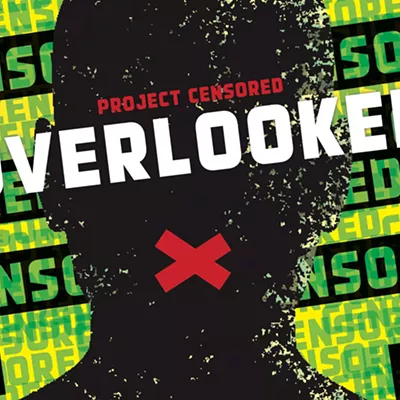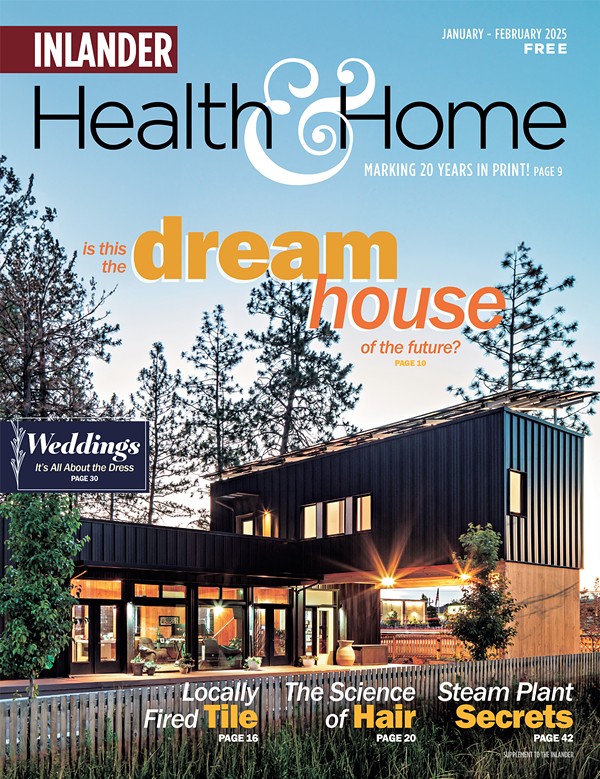Rave on
[
{
"name": "Broadstreet - Instory",
"component": "25846487",
"insertPoint": "4",
"requiredCountToDisplay": "4"
},{
"name": "Broadstreet - Empower Local",
"component": "27852456",
"insertPoint": "8",
"requiredCountToDisplay": "8"
},{
"name": "Broadstreet - Instory",
"component": "25846487",
"insertPoint": "12",
"requiredCountToDisplay": "12"
},{
"name": "Broadstreet - Instory - 728x90 / 970x250",
"component": "27852677",
"insertPoint": "18",
"requiredCountToDisplay": "18"
},{
"name": "Broadstreet - Instory",
"component": "25846487",
"insertPoint": "5th",
"startingPoint": "23",
"requiredCountToDisplay": "24",
"maxInsertions": 100
}
]
by Kris Dinnison
America needs some fun right now. As we hover between tragedy and war, we need to remember that there was a simpler time: a time before Vietnam and drug wars and terrorist bombings. That time was the 1950s, and while it had tragedies of its own, even they were somehow simpler. Buddy: The Buddy Holly Story, the musical that shakes up the Opera House stage starting Tuesday, springs from that time.
The show is a biography of Holly's life, taking the audience through his short career, marriage and untimely death in a plane crash in 1959.
"Theater is a means of escape," explains Craig Davenport, who plays Holly's first manager, Hipockets Duncan, a DJ from Lubbock, Texas. "Oddly enough, with the Buddy Holly story, it was a tragedy, but you can see through his music that there is life to be had on the other side. We all realize that we don't have to forget, but we don't have to stop living."
Ironically, this show about an American rock 'n' roll icon originated in London's West End. Written by Brit Alan James, the show debuted in 1989 and has gone on to play in dozens of countries and win several major awards, including the Laurence Olivier award for best musical and for best actor in a musical. In Davenport's opinion, that British influence contributes to the storytelling.
"Our director was the assistant director in the London production," says Davenport. "They were very open to any Americanization that we felt was important, but in some ways they have a clearer perspective than we might see."
The story is powerfully punctuated by Holly's greatest hits including "Peggy Sue," "Oh Boy," "That'll be the Day" and host of other familiar tunes. In fact, all the music and lyrics in the show were written by Buddy Holly. According to Davenport, that music makes this show unique: "Come expecting a great time. [The audience] will see that it's a show like they've always seen, but it's different too, because it's rock 'n' roll. We've not had an audience that's not been on its feet at the end of the show. We almost bring down the house every single night."
Another thing that makes this show unique is that the actors in this musical don't just sing and dance and act, they also play the rock 'n' roll instruments Holly's hits require. The actors who play Holly and the Crickets, as well as other famous musicians in the show such as Ritchie Valens and the Big Bopper, are playing the instruments their characters played.
"We have great rock 'n' roll musicians on that stage," explains Davenport. "There's no pit orchestra. As an actor, it's a demanding show, but it's fun. It's rock 'n' roll!"
All that talent comes together at the end of the show for what amounts to a recreation of Holly's final concert. "At the end of the show, we have a concert," says Davenport. "We basically replay the Clear Lake concert, which was his last. If it doesn't bring the audience to its feet, I'll be surprised."
The scope of the story is short, just the few years of Holly's development as a musician to that final concert in Iowa, but the lasting impact of Holly's career is powerful. Holly is still considered a pioneer in American music for the chances he took.
"What is most impressive to me is he was only about 19 years of age when all this happened," says Davenport. "All this happened in about 18 months, and I can't even tell you all the hits he has."
Davenport's character, Hipockets, was instrumental in that career, and in the storytelling of the show. "He's kind of a minor narrator of the show," says Davenport. "In this version of the show, he's basically the person who discovers Buddy Holly and the Crickets."
But that doesn't mean Hipockets supported Holly's career decisions. After opening for Elvis Presley in 1955, Holly saw his musical path: rock 'n' roll. But at one point Hipockets tries to steer Holly away from rock 'n' roll towards a career in country music. "Hipockets thought Buddy would have a better shot at being a country music star," explains Davenport. "But Buddy followed his own path. It doesn't work for everybody, but it worked perfectly for Buddy."
When Hipockets and Holly finally did part ways, Hipockets held no animosity about the leave-taking. "There's a scene in the radio station between Hipockets and Buddy when Hipockets realizes he has to give Buddy up," Davenport says. "It was just a graduation for Buddy, a moving on to bigger and better things, and Hipockets was all for that."
The show addresses other parts of Buddy Holly's story in a similarly matter-of-fact way. Any popular musician of the 1950s and '60s was involved in questions of race and equality, and Holly was no exception. He married Maria Elena, a Latina woman, in a time when biracial marriages were, to put it nicely, unpopular. And Holly and his Crickets were the first white act to ever play the Apollo Theater in New York, an event both historic and potentially disastrous. Both events are touched on in the play, but the show doesn't attempt to teach a lesson, historical or otherwise.
"We actually tell both of those stories," says Davenport. "But we don't weigh heavily on the race issue because it wasn't an issue for Buddy. It was all about the music for him. None of that is thrown away; it's addressed, but it's addressed in a very true way. It doesn't dwell on them and it doesn't beat them to death."
In the end, the fact that the show stays true to the music, and to Holly's approach to it, makes Davenport even more glad to be a part of it all: "It's funny. It's dramatic, and it's also a touching story. This wasn't just a star. This was a human being, a boy from Lubbock, Texas, trying to make a difference."
Buddy: The Buddy Holly Story is at the Opera House
from Oct. 16-18 at 7:30 pm, Oct. 19 at 8 pm and Oct. 20
at 2 pm and 8 pm. Tickets: $20-$44. Call: 325-SEAT.proof page info.eps
America needs some fun right now. As we hover between tragedy and war, we need to remember that there was a simpler time: a time before Vietnam and drug wars and terrorist bombings. That time was the 1950s, and while it had tragedies of its own, even they were somehow simpler. Buddy: The Buddy Holly Story, the musical that shakes up the Opera House stage starting Tuesday, springs from that time.
The show is a biography of Holly's life, taking the audience through his short career, marriage and untimely death in a plane crash in 1959.
"Theater is a means of escape," explains Craig Davenport, who plays Holly's first manager, Hipockets Duncan, a DJ from Lubbock, Texas. "Oddly enough, with the Buddy Holly story, it was a tragedy, but you can see through his music that there is life to be had on the other side. We all realize that we don't have to forget, but we don't have to stop living."
Ironically, this show about an American rock 'n' roll icon originated in London's West End. Written by Brit Alan James, the show debuted in 1989 and has gone on to play in dozens of countries and win several major awards, including the Laurence Olivier award for best musical and for best actor in a musical. In Davenport's opinion, that British influence contributes to the storytelling.
"Our director was the assistant director in the London production," says Davenport. "They were very open to any Americanization that we felt was important, but in some ways they have a clearer perspective than we might see."
The story is powerfully punctuated by Holly's greatest hits including "Peggy Sue," "Oh Boy," "That'll be the Day" and host of other familiar tunes. In fact, all the music and lyrics in the show were written by Buddy Holly. According to Davenport, that music makes this show unique: "Come expecting a great time. [The audience] will see that it's a show like they've always seen, but it's different too, because it's rock 'n' roll. We've not had an audience that's not been on its feet at the end of the show. We almost bring down the house every single night."
Another thing that makes this show unique is that the actors in this musical don't just sing and dance and act, they also play the rock 'n' roll instruments Holly's hits require. The actors who play Holly and the Crickets, as well as other famous musicians in the show such as Ritchie Valens and the Big Bopper, are playing the instruments their characters played.
"We have great rock 'n' roll musicians on that stage," explains Davenport. "There's no pit orchestra. As an actor, it's a demanding show, but it's fun. It's rock 'n' roll!"
All that talent comes together at the end of the show for what amounts to a recreation of Holly's final concert. "At the end of the show, we have a concert," says Davenport. "We basically replay the Clear Lake concert, which was his last. If it doesn't bring the audience to its feet, I'll be surprised."
The scope of the story is short, just the few years of Holly's development as a musician to that final concert in Iowa, but the lasting impact of Holly's career is powerful. Holly is still considered a pioneer in American music for the chances he took.
"What is most impressive to me is he was only about 19 years of age when all this happened," says Davenport. "All this happened in about 18 months, and I can't even tell you all the hits he has."
Davenport's character, Hipockets, was instrumental in that career, and in the storytelling of the show. "He's kind of a minor narrator of the show," says Davenport. "In this version of the show, he's basically the person who discovers Buddy Holly and the Crickets."
But that doesn't mean Hipockets supported Holly's career decisions. After opening for Elvis Presley in 1955, Holly saw his musical path: rock 'n' roll. But at one point Hipockets tries to steer Holly away from rock 'n' roll towards a career in country music. "Hipockets thought Buddy would have a better shot at being a country music star," explains Davenport. "But Buddy followed his own path. It doesn't work for everybody, but it worked perfectly for Buddy."
When Hipockets and Holly finally did part ways, Hipockets held no animosity about the leave-taking. "There's a scene in the radio station between Hipockets and Buddy when Hipockets realizes he has to give Buddy up," Davenport says. "It was just a graduation for Buddy, a moving on to bigger and better things, and Hipockets was all for that."
The show addresses other parts of Buddy Holly's story in a similarly matter-of-fact way. Any popular musician of the 1950s and '60s was involved in questions of race and equality, and Holly was no exception. He married Maria Elena, a Latina woman, in a time when biracial marriages were, to put it nicely, unpopular. And Holly and his Crickets were the first white act to ever play the Apollo Theater in New York, an event both historic and potentially disastrous. Both events are touched on in the play, but the show doesn't attempt to teach a lesson, historical or otherwise.
"We actually tell both of those stories," says Davenport. "But we don't weigh heavily on the race issue because it wasn't an issue for Buddy. It was all about the music for him. None of that is thrown away; it's addressed, but it's addressed in a very true way. It doesn't dwell on them and it doesn't beat them to death."
In the end, the fact that the show stays true to the music, and to Holly's approach to it, makes Davenport even more glad to be a part of it all: "It's funny. It's dramatic, and it's also a touching story. This wasn't just a star. This was a human being, a boy from Lubbock, Texas, trying to make a difference."
Buddy: The Buddy Holly Story is at the Opera House
from Oct. 16-18 at 7:30 pm, Oct. 19 at 8 pm and Oct. 20
at 2 pm and 8 pm. Tickets: $20-$44. Call: 325-SEAT.proof page info.eps
















